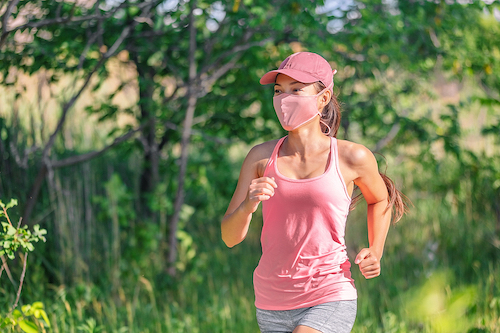 Having access to nature during COVID-19 lockdowns is important for mental health.
Having access to nature during COVID-19 lockdowns is important for mental health.
Researchers in Europe found that those living in European countries with strict COVID-19 lockdown policies were more likely to have symptoms of anxiety and depression.
The study, published in the journal Science of the Total Environment was undertaken during the first wave of COVID-19 in Europe between March to May of 2020.
The researchers from the Basque technology center AZTI and the University of Exeter invited people to voluntarily respond to questionnaires to determine their mental health status and behaviour whilst experiencing severe restrictions that reduced their mobility during the first wave.
“The study was mainly inspired by two issues: The first reason was to note how differently social distancing measures were impacting me compared to my family and friends. When the first wave of Covid-19 arrived in Europe, I had recently moved from Spain to Norway. In Norway, the social distancing measures were relatively mild. Despite the closure of shops, restaurants, and preference for remote working, I had a lot of time to enjoy the nature and practice outdoor activities,” Dr Sarai Pouso, lead author of the study and a researcher from AZTI told Theravive.
“My family and friends in Spain were having a much more complicated experience: they were in strict lockdown and they could only go out for very specific tasks (essential jobs, shopping, or medical reasons). Generally, I noticed that they were sadder and more nervous.”
Together with her colleauges, Pouso set out to determine whether being forced to disconnect from nature during COVID-19 lockdowns impacted mental health.
Less than 20 days after inviting people to respond to the survey, the researchers had 6769 responses from 77 countries. For their analysis, they chose to focus on 5218 people in nine countries.
They found that those who were living under the harshest of lockdowns during the first wave of COVID-19 in Europe, (like in Italy and Spain when people were only allowed out for work or essential purchases), were more likely to show symptoms of depression and anxiety. In countries who took a more relaxed approach to lockdown during the first wave, when people were still allowed to visit places like parks and other natural spaces, the same impact wasn’t seen. This was true for places like the United Kingdom and Norway.
In Spain during May, the severity of the COVID-19 outbreak meant that all outdoor activities like walking or engaging in sport were forbidden. The researchers found that people in this situation who had access to an outdoor space at home fared better than others.
“Among people under strict lockdown, having access from home to outdoor spaces (for example a garden, balcony) and having window views to open spaces or natural elements (for example the sea,) decreased the probability of reporting symptoms of depression. The positive effect of access to outdoor spaces and nature views from home was far less important in countries where people were allowed or encouraged to visit parks and other natural locations. Of course, if you still have access to natural locations, having a terrace or nature views from home is less important. But when the only way in which you can ‘reach’ nature is what you can access or see from home, the effect of those elements becomes much more important,” Pouso told Theravive.
The researchers say their findings are an important reminder to governments that if further lockdowns are necessary, policy makers should consider giving the population an allowance for time spent outdoors.
“Spending time outdoors in nature, e.g. having a walk in a forest, along a coastal path, or practicing sports outdoors, can have a protective effect against negative mental health conditions and also help us improve our current physical health, especially under stressful situations such as lockdowns,” Pouso said.
“Also, I think it is important that policy makers and urban planners understand that investing in nature conservation and restoration can improve human health and wellbeing over generations. Urban development that ensures contact with nature through ‘outdoor access’ such as balconies and nature views from windows (as well as public parks and gardens) should also be prioritized. This is especially relevant in urban areas, where people have greater difficulty in accessing natural environments.”
Elizabeth Pratt is a medical journalist and producer. Her work has appeared on Healthline, The Huffington Post, Fox News, The Australian Broadcasting Corporation, The Sydney Morning Herald, News.com.au, Escape, The Cusp and Skyscanner. You can read more of her articles here. Or learn more about Elizabeth and contact her via her LinkedIn and Twitter profiles.